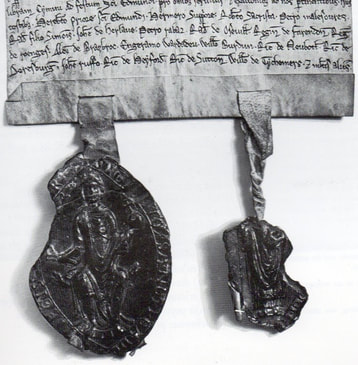Scholarly Services |
Historical Research
|
As this country has not been invaded since 1066, there are extraordinarily rich document collections relating to land, buildings and people of all social classes in every county.
Some records survive in unbroken runs of nearly eight centuries. Work can be undertaken into all aspects of local or national history, and documents examined in Kentish archives or further afield. By no means all material is yet on the web, and even if there is an index, there is no substitute to examining original records. |
Did you Know?
- The National Archives at Kew have documents covering 14 centuries.
- Most records before about 1700 are written on parchment, that is specially prepared sheep or goat skin.
- English was not used regularly until an Act of Parliament of 1733.
- Most records before about 1700 are written on parchment, that is specially prepared sheep or goat skin.
- English was not used regularly until an Act of Parliament of 1733.
Questions - Historical Research
Is there a lot of research going on?
Yes, thousands of researchers are beavering away on many centuries of ancient texts in English, Latin and other languages in order to write books and theses, prepare data bases and indexes, create family trees, and investigate previously unchecked material. New discoveries are made all the time.
Where are all the records?
In the National Archives at Kew, the British Library, and in dozens of county and other record offices and archives around the country. Most material is at least listed or calendared, but much indexing still remains to be done to unlock vast amounts of potential information.
How accessible are the archives?
As long as you have a reader's card or personal introduction, the world is your oyster. More and more material is coming online, so introductory searches can be made at home before you make a personal visit to extend your research.
Do you have another question? Contact: Dr David Wright

